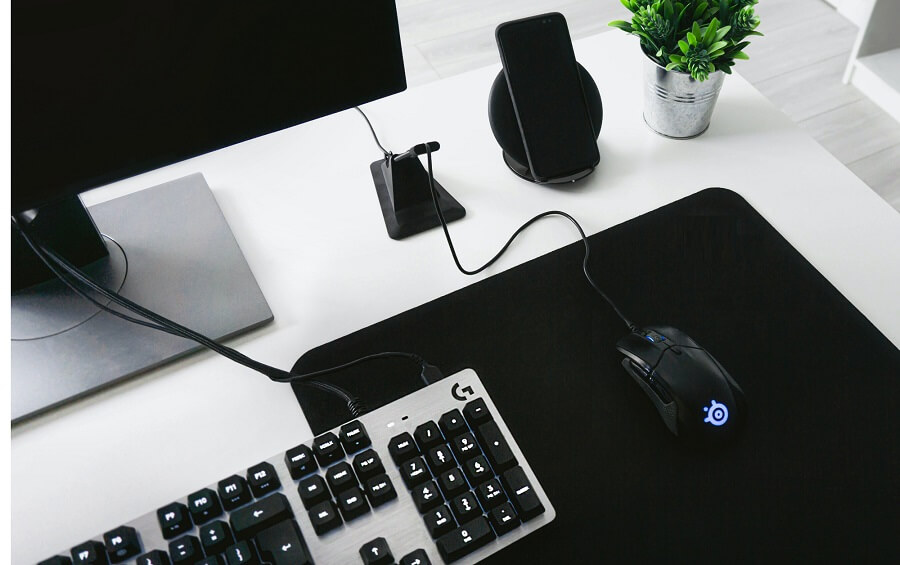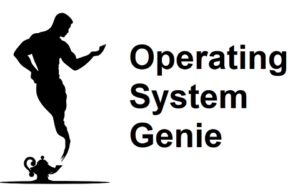The graphics card (GPU) on a computer and CPU (processor) are both key components that affect a computer’s performance. In this article, I will cover if the GPU can affect CPU performance.
The GPU does not affect the CPU performance of a computer. If the GPU is much slower than the CPU, performance can be improved by getting a faster GPU. As a general rule, a GPU upgrade offers better performance to a CPU upgrade.
There is the other issue of RAM, which I will explain below, as well as:
Let’s get into it!
Does FPS Depend on CPU or GPU

FPS depends on both the CPU or the GPU. Pre-built computers are balanced, and have a CPU that matches the GPU. But, on custom-built PCs it’s important the CPU and GPU are of similar tier.
Doing so offers the best performance. On any computer upgrading the graphics card (GPU) offers the most significant improvement in FPS. Often doubling the in game FPS depending on how different the graphics cards are.
An independent test has found that keeping the same graphics card but upgrading the CPU provided no improvement in FPS, and game load times.
The test was performed by keeping the same mid range graphics card and swapping out the CPU. The CPU was changed from a 10th gen i5, to a 10th gen i7. A significant upgrade.
But, it was found to only 1 to 2 frames of FPS improvement. Whereas, keeping the same mid range CPU a 10th gen 15, and upgrading the graphics card, the FPS doubled.
Here’s a table that shows the ideal configuration for the specifications of the CPU and GPU:
| CPU and graphics card (GPU) specs | Performance |
| Fast CPU, slow graphics card | Bad |
| Slow graphics card, fast CPU | Bad |
| Close to evenly matched CPU and graphics card | Best |
With GPUs and CPUs there are broad tiers for performance. With a rough designation of low, mid, and high end. For best performance you always want to match the CPU to the GPU. With pre-built computers, and laptops this is already done for you.
The one upgrade you could make that would improve performance is getting a better graphics card.
Does CPU affect FPS
The CPU on a computer directly affects in-game FPS. As well as, performance on programs that are resource intensive such as video rendering, and streaming.
But, upgrading the graphics card on a computer is a much better option. It will provide a significant improvement in FPS.
Whereas, upgrading the CPU and keeping the same graphics card will have a very minor effect.
How the CPU affects FPS
The speed of the CPU affects how much of the GPU is utilized. Ideally, the GPU should be utilized at 100%. This will only occur in a game. If the CPU is too slow for the GPU, it will not utilize at 100%. The CPU is not able to send files to it fast enough.
This is what is called a bottleneck. Simply put, one of the components is slower than the other, and causes the other component to wait.
But, it’s important to note that there will always be a bottleneck on a computer. Either, the CPU will be a bit slow, or the GPU will be a bit slow. The overall idea is to match the CPU to the GPU, that way it minimizes bottlenecking.
RAM is also a key component. RAM is a bit simpler, I explained how it fits in, in this article about whether low RAM can cause high CPU usage. It goes over how much RAM usage is normal. And how RAM affects FPS and CPU performance.
Does GPU Affect FPS
The GPU on a computer does affect in-game FPS. The faster the GPU is the better the FPS will be on a computer. But, the CPU also needs to be able to keep up with the GPU.
The easiest way to do that is by the price tiers. Computer hardware companies like Intel and AMD have price tiers for their GPUs, and CPUs. You want to get a CPU and GPU that is on a matching tier.
But, you can get a GPU that is a bit above. Whereas, getting a CPU that is a tier above the GPU won’t improve performance. It’s better to get a better graphics card than a better CPU.
The GPU sends the video output to a monitor. The faster the output is sent the more FPS a computer can provide. But, it is a threshold, and anything over above 60 FPS is perfect. Computers can come with a built-in graphics card called an integrated graphics card.
These are built into the motherboard.
A stand alone graphics card is called a dedicated graphics card. They have significantly better performance than integrated graphics cards.
So, getting a dedicated graphics card, if your computer is currently using an integrated graphics card will significantly improve FPS.
Interestingly, when you install a stand alone graphics card (dedicated GPU), the integrated graphics card gets disabled. A PC can only use one graphics card at a time.
Many people are of the opinion that the fuller the hard drive is on a computer, the slower the computer will be. I looked into this further and summarized what I found in this article about whether having a full SSD slows down a PC.
It shows the results of independent tests on a PC where the hard drive was speed tested. Where the hard drive was 60% full, 70% full, 80% full, 90%, and 99% full. To see if it made a PC faster or slower for using Windows and gaming.
Does CPU Affect Gaming
The CPU does affect gaming. The absolute measure of a computer’s performance for gaming is frames per second (FPS). A faster CPU will affect the FPS. But, only if the graphics card is upgraded as well.
Getting a faster CPU with the same graphics card will affect gaming performance. If you take a computer with a fast CPU, and a computer with a slow CPU, the computer with the fast CPU will have better gaming performance.
But, the faster CPU will also have a faster built-in graphics card that also contributed a lot to improving the faster CPUs performance in game. If you had to choose between a faster CPU and a faster graphics card, getting a faster graphics card is a far better option.
